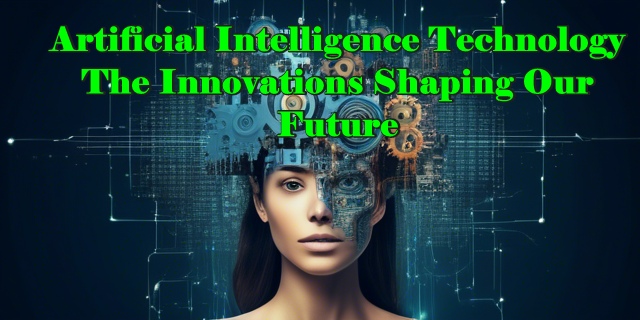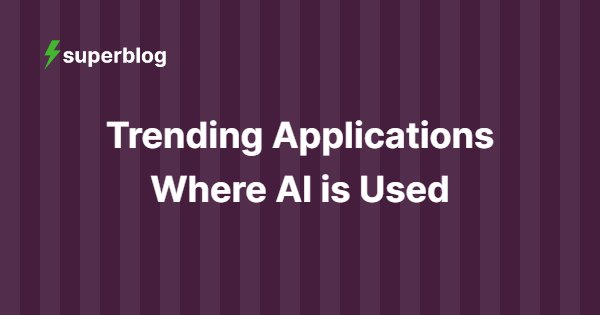AI for Human Resources and Recruitment
The integration of Artificial Intelligence (AI) into Human Resources (HR) and recruitment is no longer a futuristic concept; it’s a present-day necessity. This comprehensive guide explores the transformative impact of AI across various HR functions, from initial candidate sourcing to employee retention. We’ll delve into specific applications, address common concerns, and highlight the strategic advantages that adopting AI can bring to your organization. By understanding the capabilities and limitations of AI in HR, you can make informed decisions to optimize your talent acquisition and management strategies, ultimately leading to a more efficient, effective, and equitable workplace. This guide aims to equip you with the knowledge to navigate the evolving landscape of AI-powered HR and harness its potential for significant gains.
Introduction
The world of Human Resources is undergoing a digital revolution. AI is rapidly reshaping how companies attract, hire, manage, and retain talent. From automating tedious tasks to providing insightful data-driven decisions, AI offers unprecedented opportunities to streamline HR processes and improve overall efficiency. This article will explore the multifaceted applications of AI in HR and recruitment, offering practical insights and addressing common misconceptions to help businesses leverage this powerful technology effectively.
Frequently Asked Questions
- What is the cost of implementing AI in HR? The cost varies significantly depending on the specific AI tools and services chosen, the size of your organization, and the level of integration required. Some solutions offer subscription-based models, while others involve one-time purchases or custom development. A thorough cost-benefit analysis is crucial before implementation.
- Will AI replace human HR professionals? No, AI is designed to augment, not replace, human capabilities. While AI can automate repetitive tasks, the human element remains essential for critical decision-making, empathy, and fostering positive employee relationships. AI empowers HR professionals to focus on strategic initiatives and higher-level responsibilities.
- How do I ensure the ethical use of AI in HR? Ethical considerations are paramount. Prioritize transparency, fairness, and data privacy. Choose AI tools that are designed to mitigate bias and ensure compliance with relevant regulations. Regular audits and ongoing monitoring are also crucial to maintain ethical standards.
AI-Powered Candidate Sourcing and Screening
AI significantly improves the efficiency and effectiveness of candidate sourcing and screening. Traditional methods often involve sifting through countless applications, a process prone to bias and inefficiency. AI solutions automate this process, identifying the most qualified candidates based on pre-defined criteria.
- Automated Resume Screening: AI algorithms can quickly scan resumes and applications, identifying keywords, skills, and experience relevant to the job description. This dramatically reduces screening time.
- Social Media Recruitment: AI can scour social media platforms like LinkedIn to identify potential candidates who may not have actively applied for the job. This expands the talent pool considerably.
- Predictive Analytics for Candidate Matching: Advanced AI algorithms can analyze candidate profiles and predict their likelihood of success in a specific role, based on past data and performance indicators.
- Bias Mitigation Tools: Some AI platforms incorporate bias detection and mitigation features, helping to ensure fairness and equal opportunity throughout the recruitment process.
- Chatbots for Initial Screening: AI-powered chatbots can engage with candidates, answering frequently asked questions and gathering initial information, freeing up human recruiters for more complex tasks.
AI-Driven Candidate Interviewing and Assessment
AI is transforming the candidate interviewing process, offering tools that enhance objectivity, efficiency, and candidate experience. While human interaction remains crucial for assessing soft skills and cultural fit, AI can provide valuable insights and streamline the process.
- Video Interviewing Platforms: AI-powered platforms automate the scheduling and conducting of video interviews, allowing candidates to record answers at their convenience. AI then analyzes responses, identifying key strengths and weaknesses.
- Automated Assessment Tools: AI can administer and score various assessments, including cognitive tests, personality assessments, and skills tests, providing standardized and objective evaluations.
- Sentiment Analysis in Interviews: AI algorithms can analyze the tone, language, and sentiment expressed by candidates during interviews, providing valuable insights into their communication style and emotional intelligence.
- Gamified Assessments: AI-powered games can be used to assess candidate skills and problem-solving abilities in a more engaging and interactive manner.
- Candidate Feedback Analysis: AI can analyze candidate feedback post-interview to identify areas for improvement in the recruitment process and candidate experience.
AI for Employee Onboarding and Training
The onboarding process is critical for new employees, setting the tone for their entire experience with the company. AI can automate many aspects of this process, ensuring a smoother and more engaging experience for new hires.
- Automated Onboarding Documentation: AI can automate the completion and distribution of onboarding paperwork, saving time and reducing errors.
- Personalized Onboarding Programs: AI can tailor onboarding programs to the specific needs and roles of individual employees.
- AI-Powered Learning Platforms: AI-powered platforms offer personalized learning paths and adaptive assessments, catering to different learning styles and ensuring effective knowledge retention.
- Chatbots for Employee Support: AI-powered chatbots can answer employee questions, provide access to resources, and guide them through company policies and procedures.
- Performance Tracking and Feedback: AI can track employee progress, identify areas for improvement, and deliver personalized feedback, fostering continuous development.
AI in Employee Engagement and Retention
Retaining top talent is crucial for organizational success. AI can play a vital role in improving employee engagement and reducing turnover.
- Sentiment Analysis of Employee Communications: AI can analyze employee feedback from surveys, emails, and other channels to identify trends and potential issues that could impact morale and engagement.
- Predictive Analytics for Employee Turnover: AI can analyze employee data to predict the likelihood of turnover, allowing HR to proactively address potential risks.
- Personalized Recognition Programs: AI can help design and implement personalized recognition programs that reward and acknowledge employee contributions.
- Employee Wellbeing Programs: AI can help monitor employee wellbeing and identify those who may be at risk of burnout, allowing HR to intervene and provide support.
- Enhanced Internal Communication: AI-powered tools can improve internal communication by facilitating the distribution of relevant information and fostering a sense of community.
AI in HR Analytics and Reporting
AI enables HR departments to gather, analyze, and interpret data more effectively than ever before. This data-driven approach supports informed decision-making, leading to more strategic and effective HR practices.
- Data-driven Insights into Hiring Trends: AI analyzes hiring data to identify patterns and insights, helping HR optimize recruiting strategies.
- Performance Management Analytics: AI can analyze employee performance data to identify high-performers, areas for improvement, and potential skill gaps.
- Compensation and Benefits Optimization: AI can analyze compensation data to ensure fair and competitive salaries and benefits packages.
- Diversity and Inclusion Reporting: AI can track diversity metrics, identify biases, and provide insights to promote a more inclusive workplace.
- Return on Investment (ROI) Measurement: AI allows for the precise measurement of the ROI of various HR initiatives, providing justification for investment in new technologies and strategies.
Conclusion
The strategic implementation of AI in HR and recruitment is not simply a technological upgrade; it’s a fundamental shift towards a more efficient, data-driven, and human-centric approach to managing talent. While concerns about job displacement and ethical considerations are valid, a thoughtful and responsible approach can leverage AI’s transformative power to create a more equitable, productive, and engaged workforce. By embracing AI’s capabilities, HR departments can move beyond reactive problem-solving and focus on strategic initiatives that drive business growth and improve the employee experience. The future of HR is intelligent, and organizations that embrace AI will be best positioned to thrive in the competitive landscape of the 21st century.

